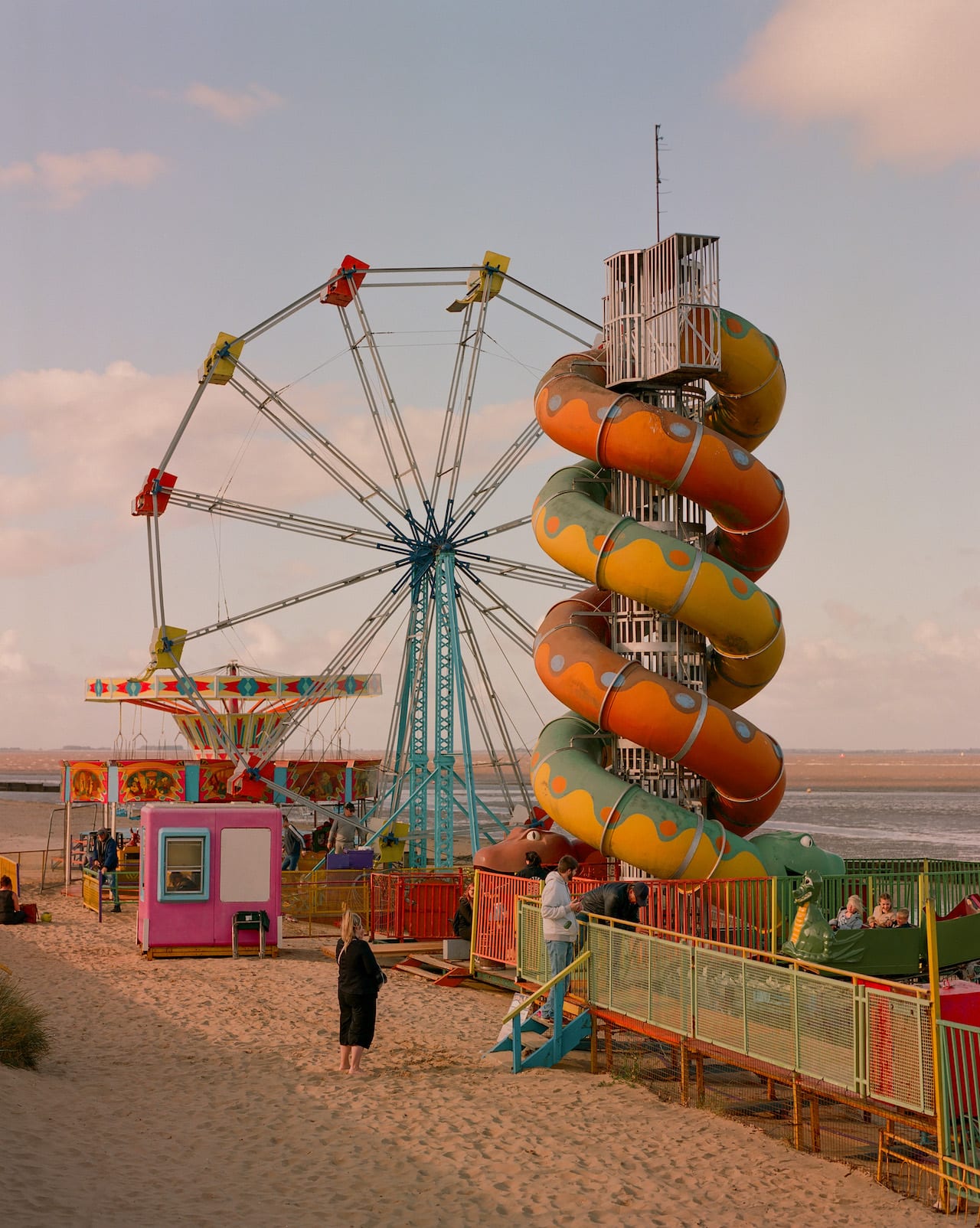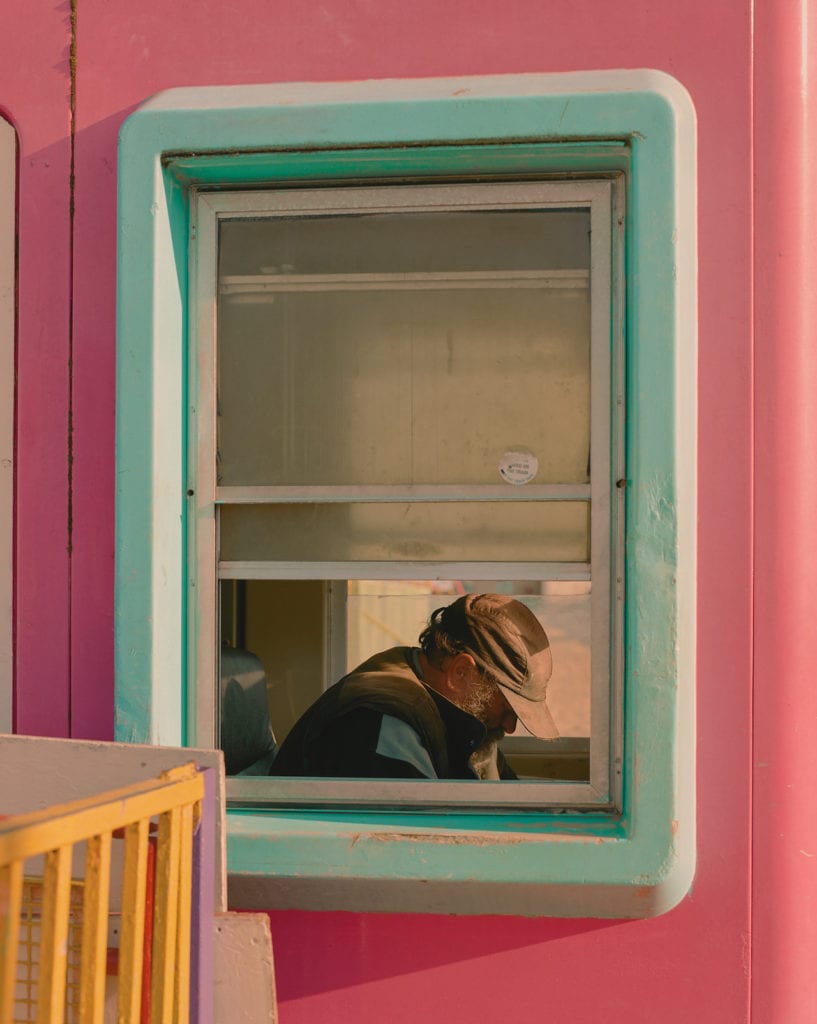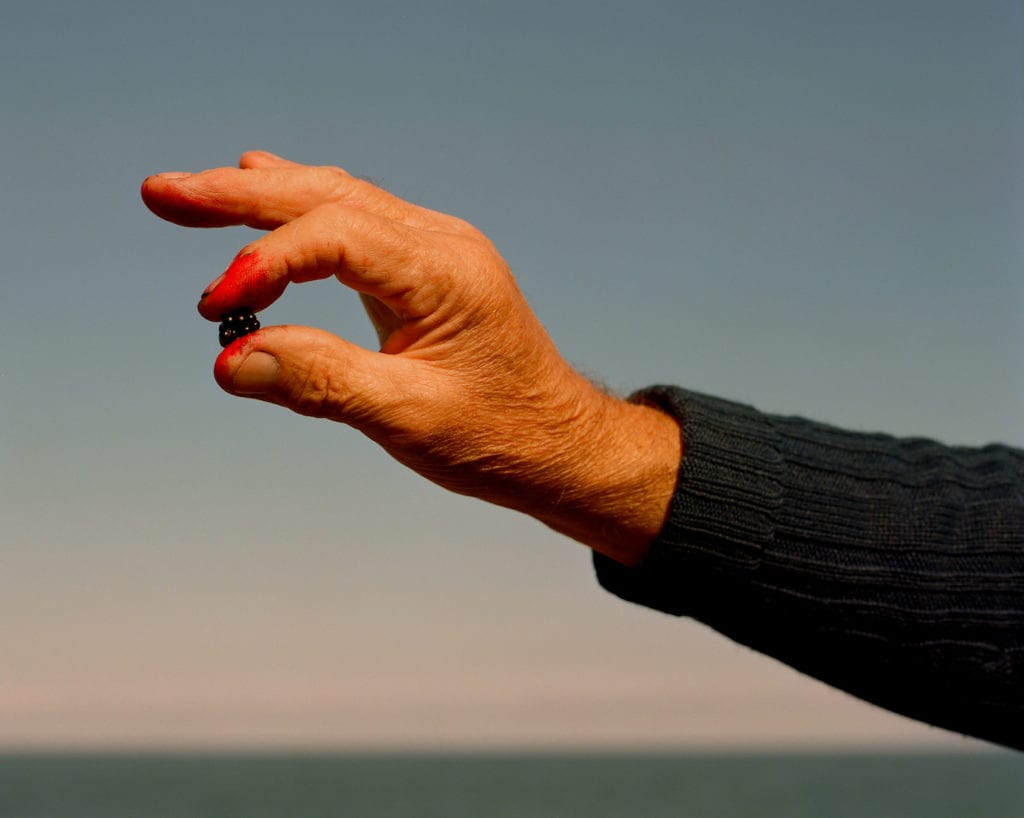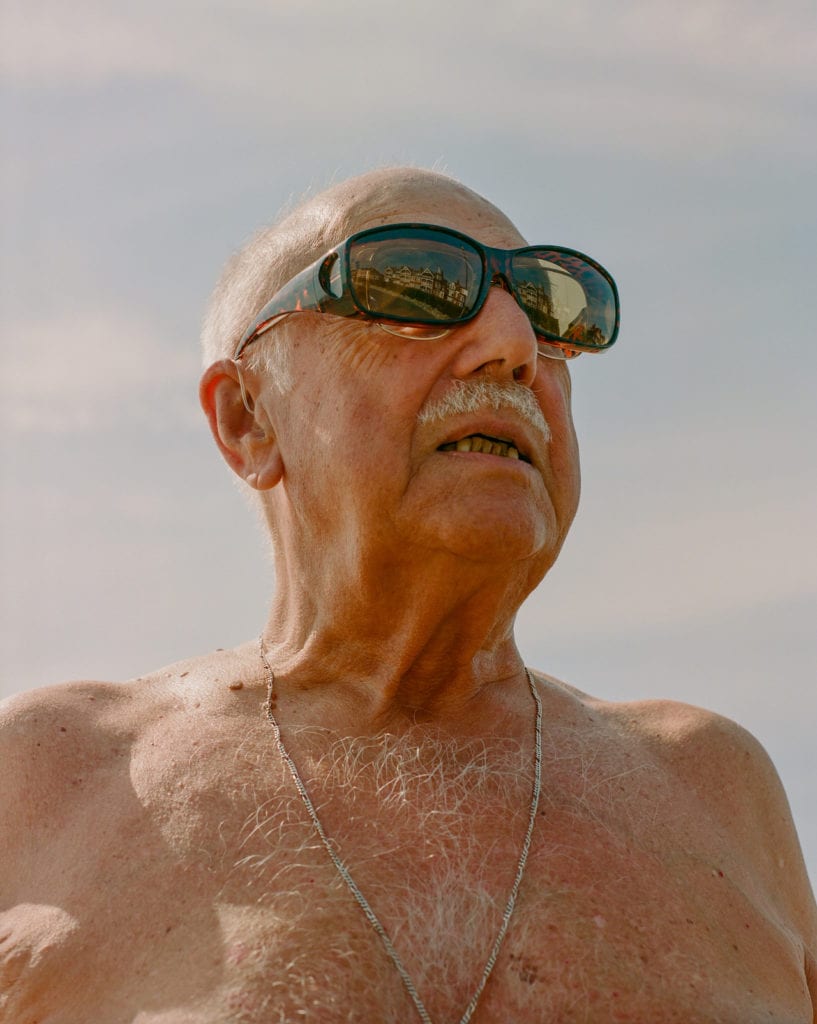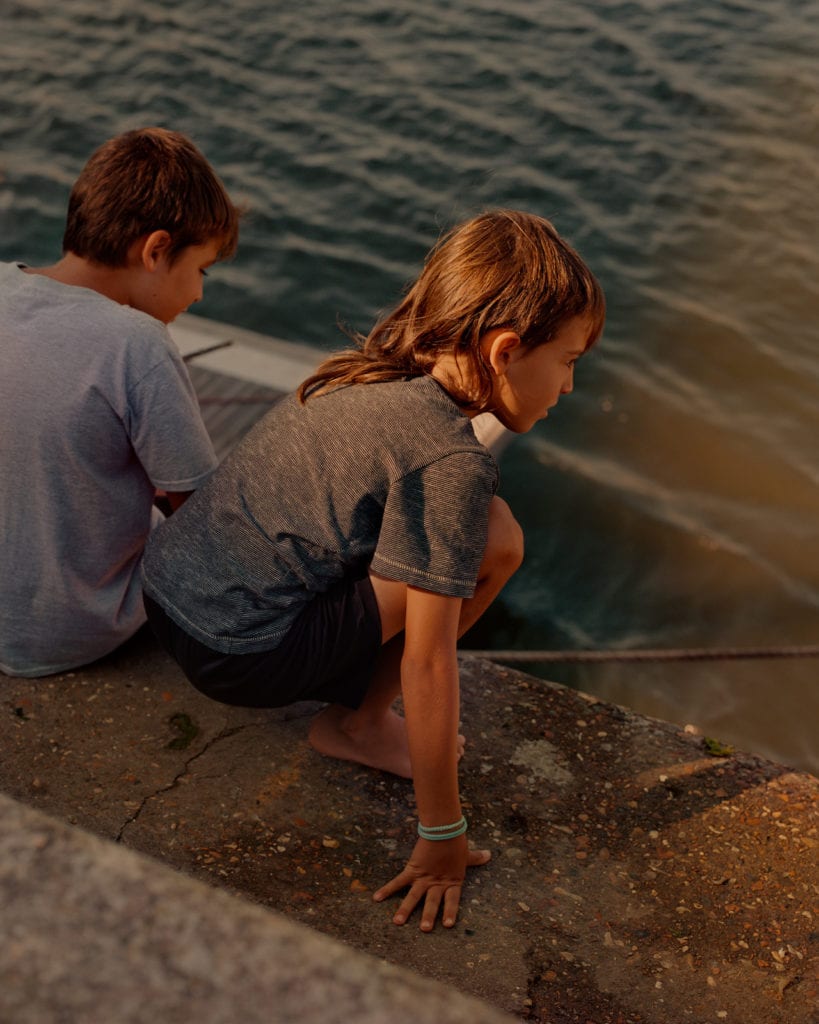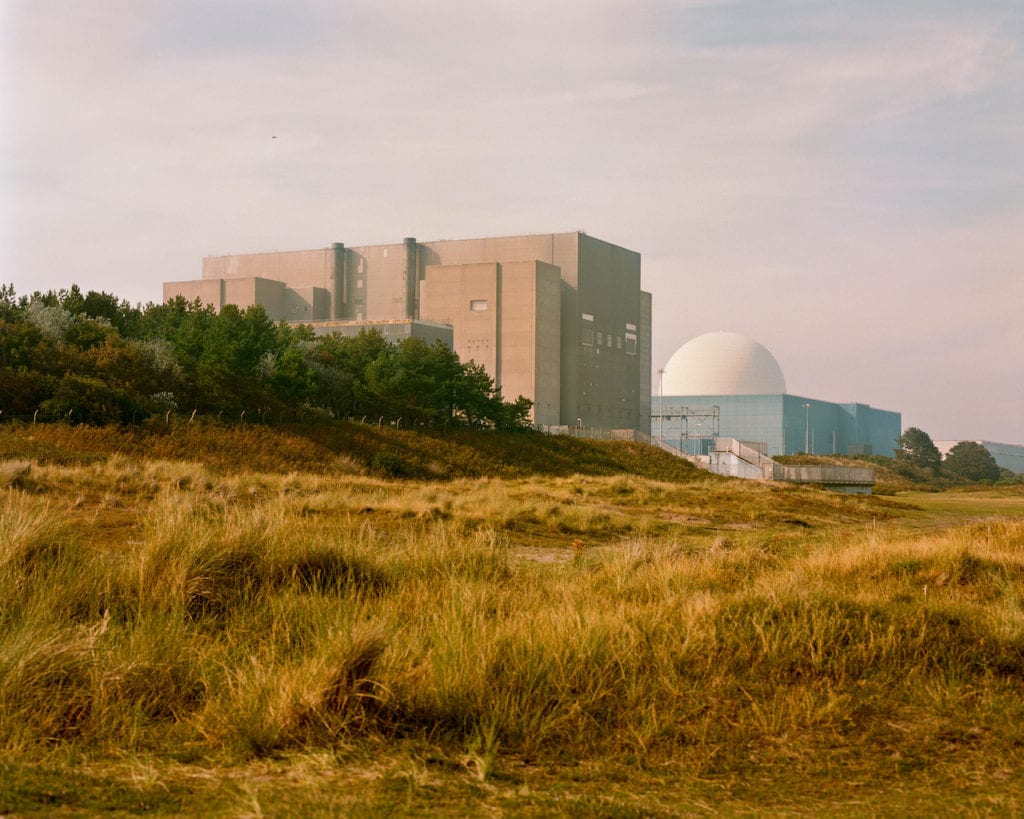On visiting the seaside towns of the UK’s East Coast, Max Miechowski discovered an unexpected apprehension for the future among the decades-old communities
There is a distinct aesthetic to the images in Max Miechowski’s latest project, A Big Fat Sky. Drenched in warm, yellow sunlight, each photograph captures a quiet innocence and calmness of life along the East Coast of Britain’s shores; a teenage lovers’ embrace, a fisherman’s anticipation or the closed shutters of the ice-cream shop as the sun sets.
Shot at the end of summer last year, the project began after a spontaneous decision by Miechowski, originally from Lincolnshire, to revisit the places where he spent his holidays as a boy. As with his previous work, such as the award-winning series Burgess Park, Miechowski is interested in the familiar environment around him — something that many may have come to appreciate more in recent times. “It’s all an attempt to gain a bigger understanding of how I fit in and what my role is in the community,” he says.
“There’s so much going on here in England, it’s important to explore it. Britain is often depicted as either gritty and tacky, or twee. It’s a weird reputation that both Brits and people from abroad seem to do a lot to maintain”
His method is intuitive, and what began as a series of beach walks soon evolved into a study of the transformative nature of the coastal landscape and the uncertain state of the industries propping up the towns’ economies. As he ventured from one town to the next, he also noticed the palpable disconnection between the North and the South — from dapper Suffolk beaches, up through Grimsby and Redcar, to the developing presence of steel works and factories in the background of Hartlepool.
“I was travelling and interacting with the coast in a conscious way,” he says. “There’s so much going on here in England, and it’s important to explore it. Britain is often depicted as either really gritty and tacky or really twee. It’s a weird reputation that both Brits and people from abroad seem to do a lot to maintain.”
Over the last few decades, the growth of budget airlines and ease of international travel has drawn crowds abroad, leaving British resort towns devoid of the organic bustle they had half a century ago. “We are so hellbent on exotic travel,” says Miechowski.
The swathes of tourists who breathed life into the funfairs, fish-and-chip shops and hotels have dwindled over the recent years, and with the added challenge of the Covid-19 lockdown regulations, these now stand neglected and empty. While this is a great threat to the future of small businesses that have flourished here for generations, the limitation of air travel for the foreseeable future might be exactly what they need to divert holiday-makers back to the British coast.
“Most of the people who grow up in these towns will stay there, working for the tourism industry, the fishing industry or the factories,” he says. “Those are pretty much the only opportunities there for them, and if they want
to do anything else they have to leave and go to cities like Manchester or London. It’s difficult because not everyone is able to do that.”
Miechowski explains that he sees A Big Fat Sky as the first chapter of a much larger body of work. The story of the East coast, with the ripple effect of the pandemic on its people and the economy, is one that is only just beginning. He hopes to follow and document it as it unfolds.

